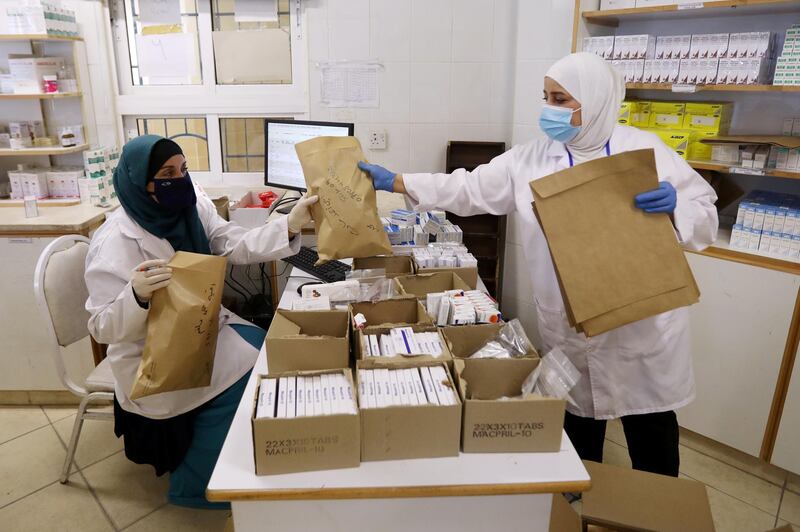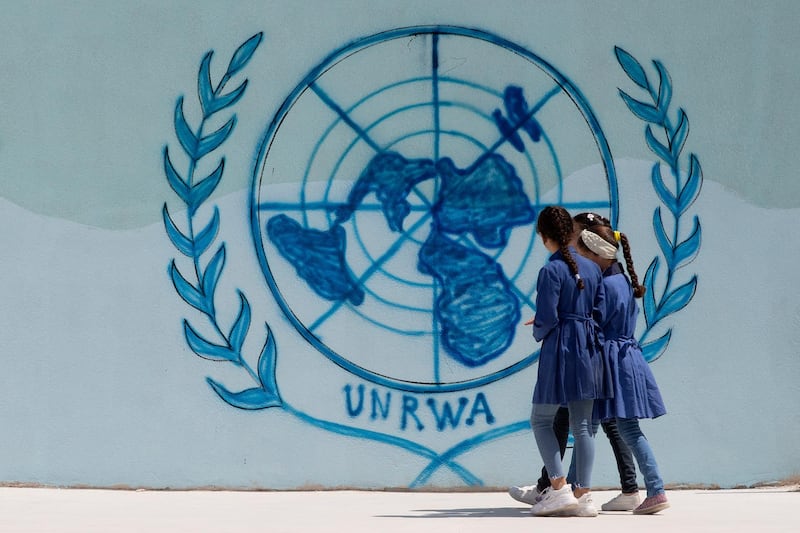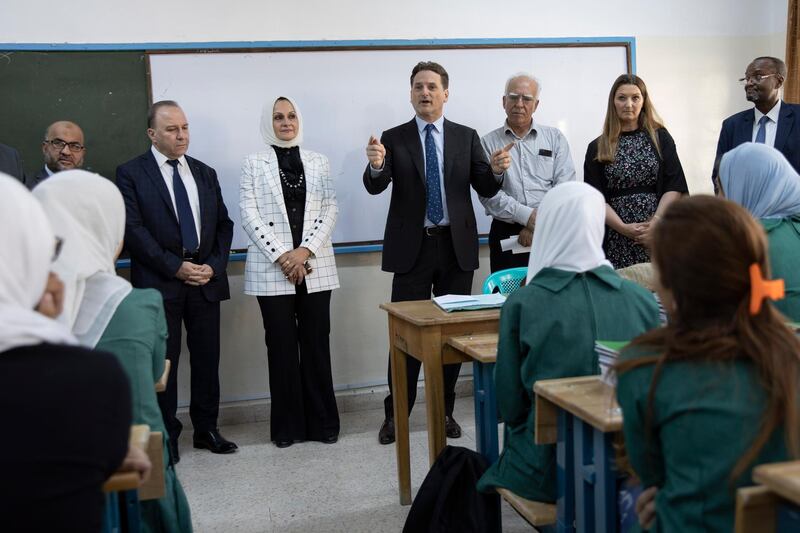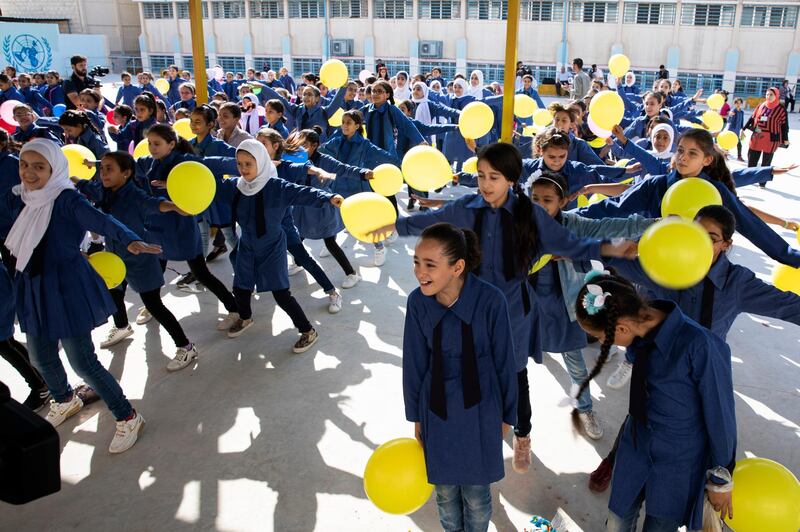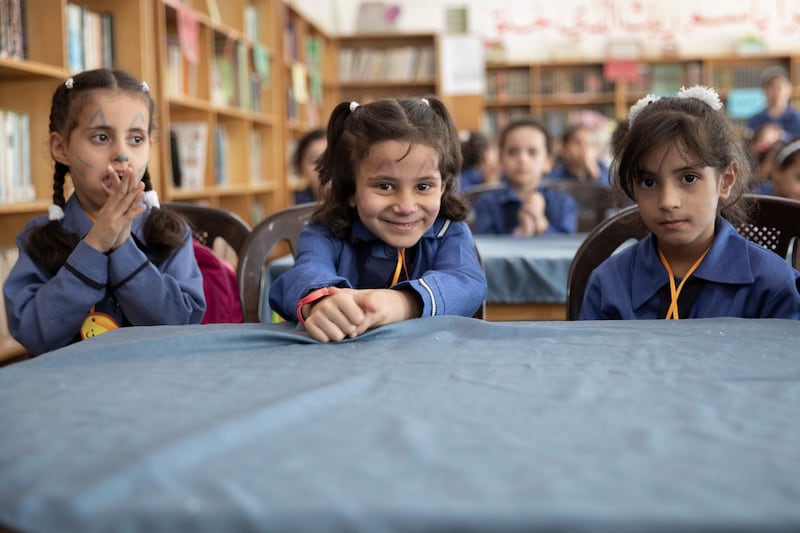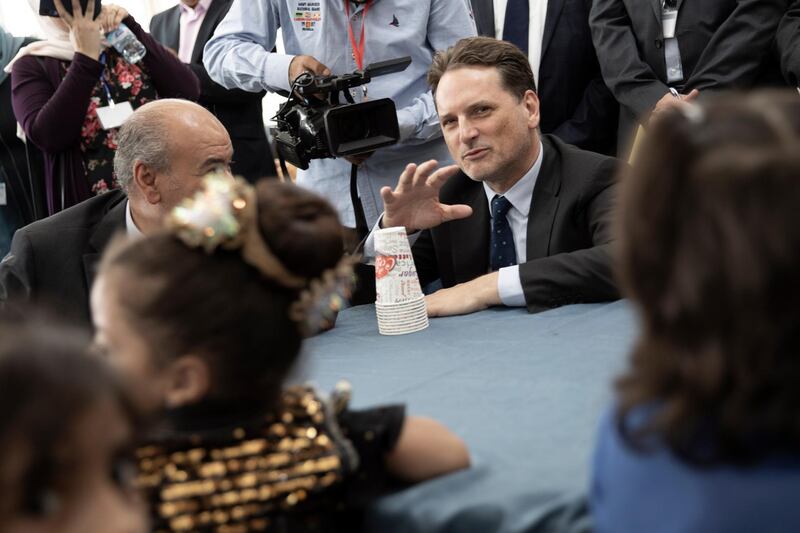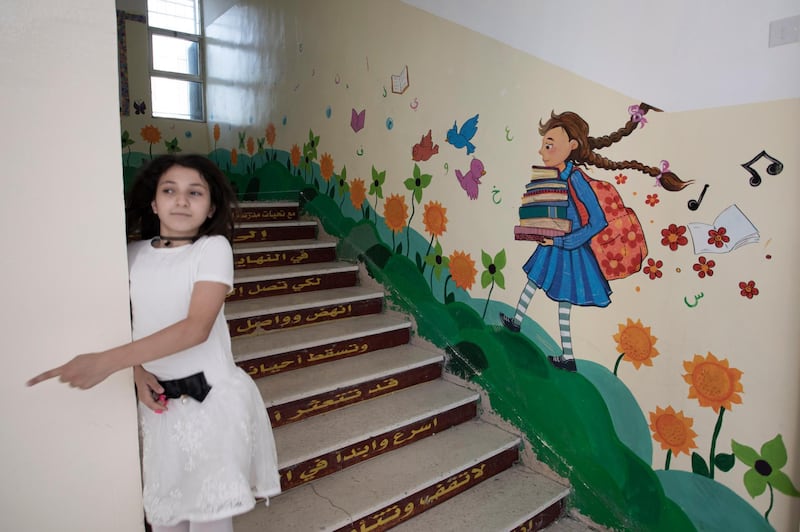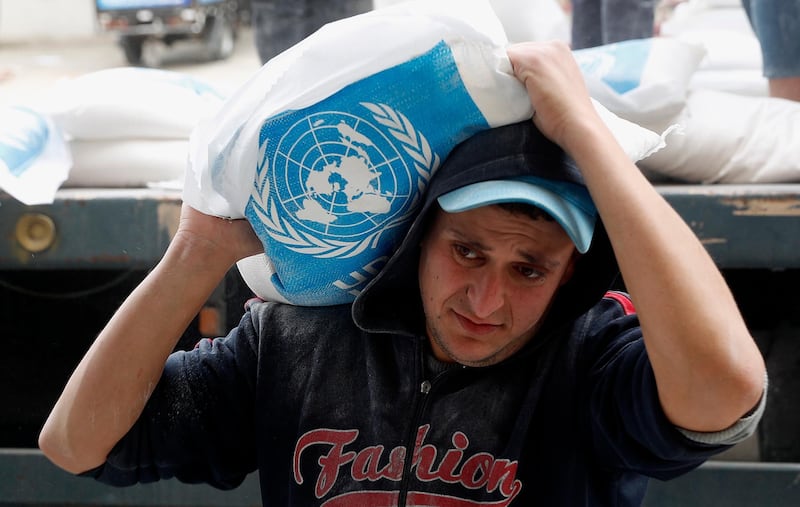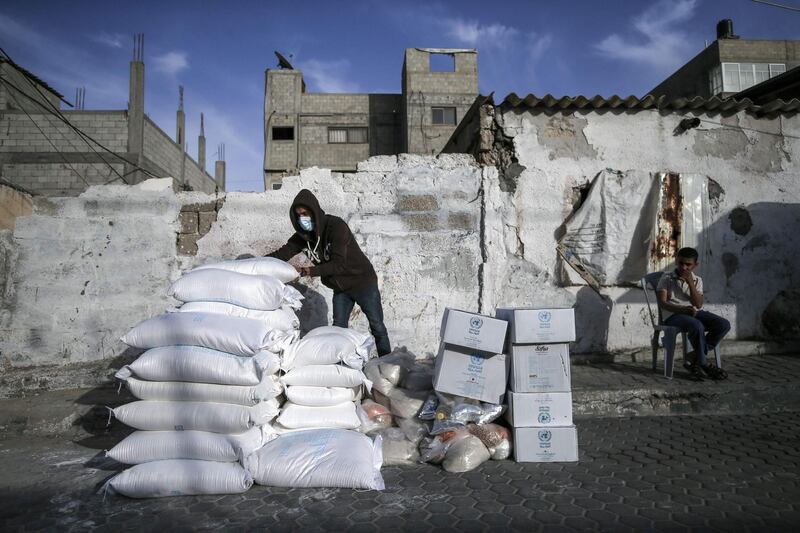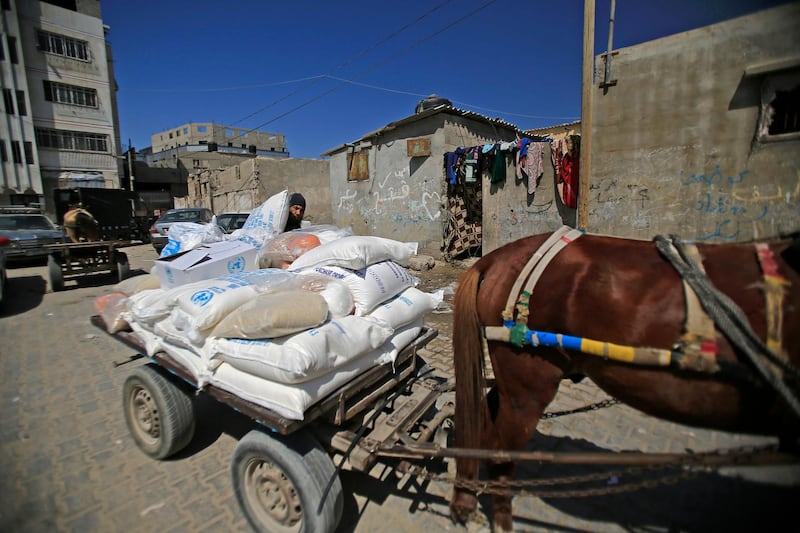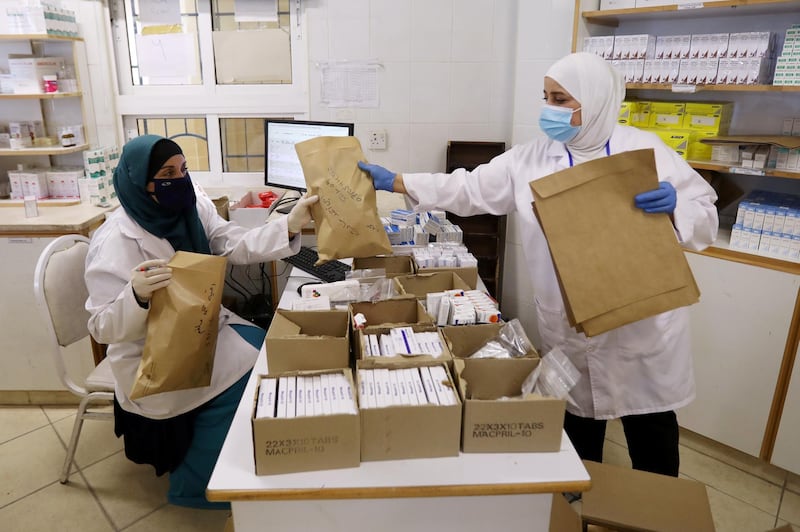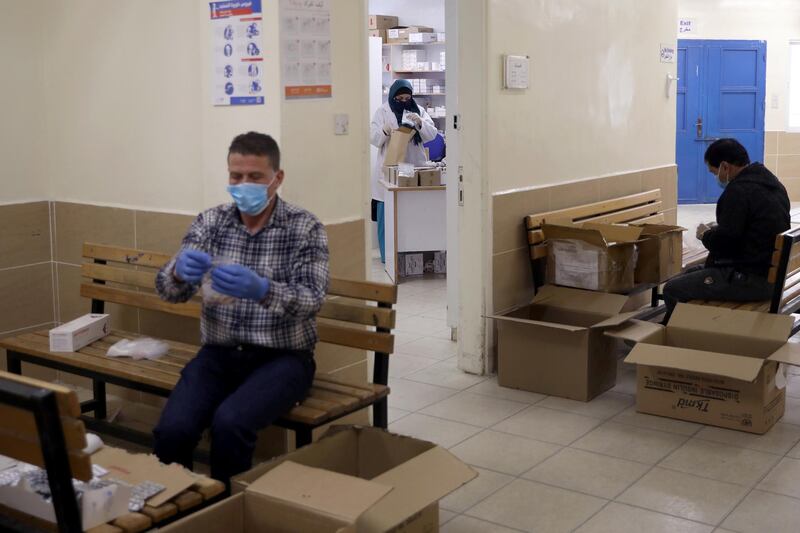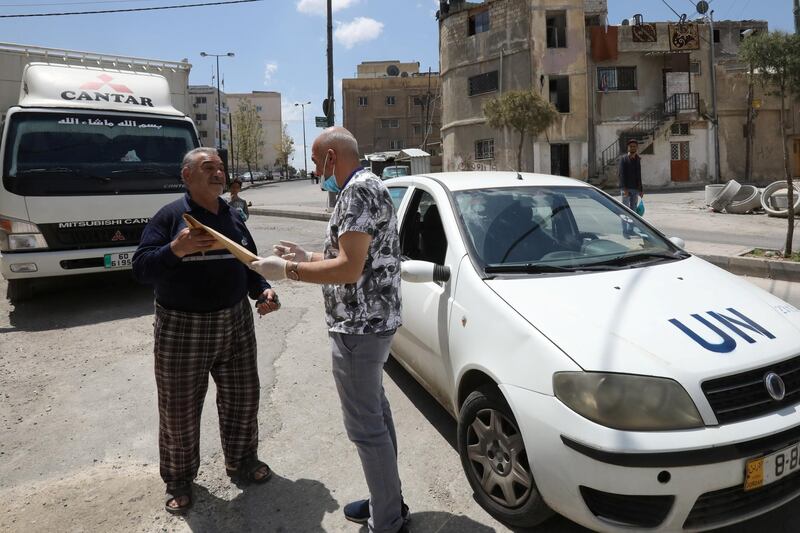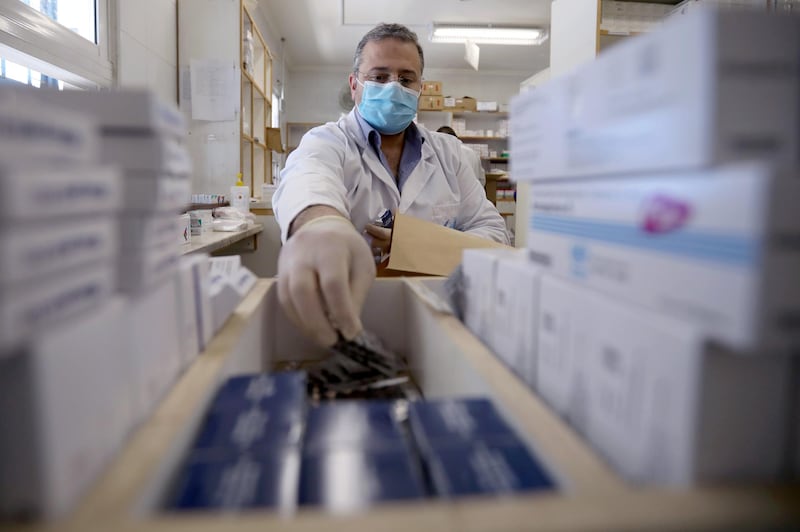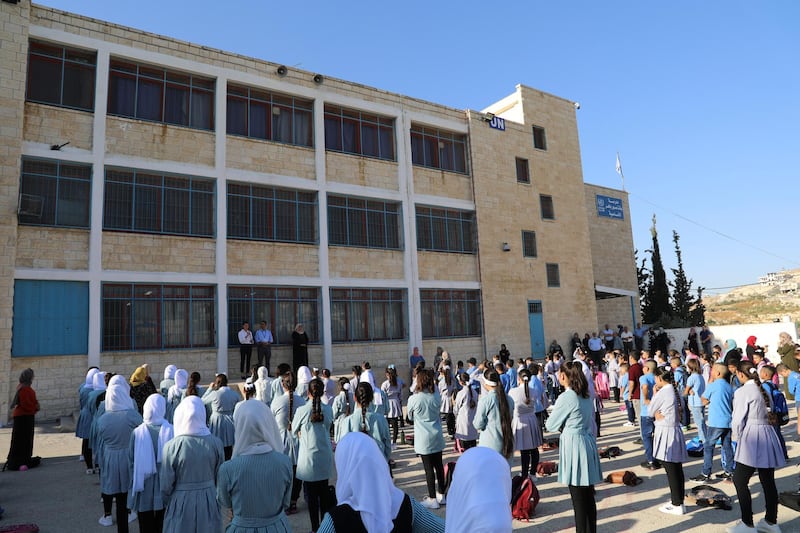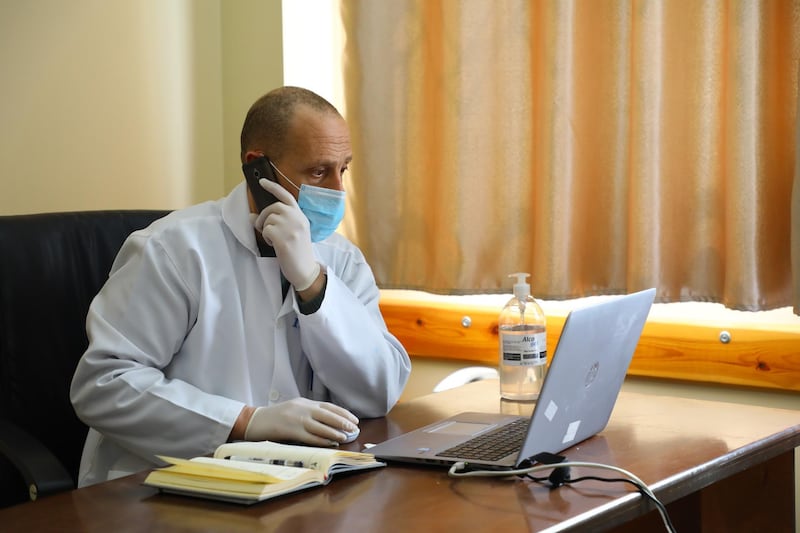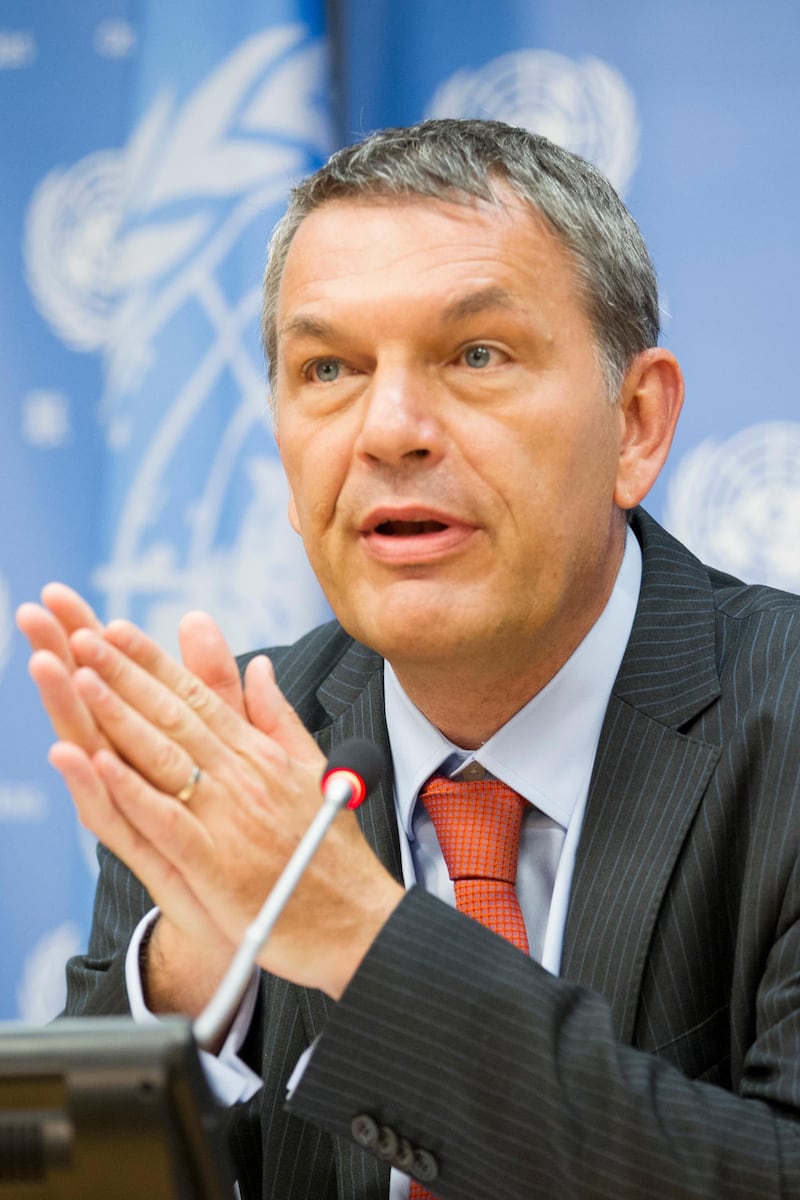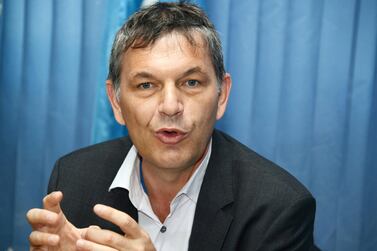The UN agency for Palestinian refugees is struggling to cope with the fallout of the coronavirus outbreak in Jordan after a nationwide lockdown that left almost everyone in the camps without work.
Increased assistance to offset the loss of income for refugees has left the UN Relief and Works Agency needing an additional $100 million in funding by the end of May, officials say.
Unemployment among refugees in Jordan's 10 UNRWA-run camps rose from about 50 per cent to almost 100 per cent as a result of restrictions on movement and the closure of businesses to prevent the spread of Covid-19, agency officials said..
The vast majority in the camps, which are home to 450,000 of Jordan’s 2.2 million registered Palestinian refugees, rely on daily earnings from labour or small businesses to survive.
Abu Ahmed, a resident of Baqaa Camp on the edge of Amman, has been unable to work since mid-March. His five children, parents and in-laws lived on the 400 dinars he earned each month from driving a taxi and odd jobs.
“We always say God provide. But if we cannot go out to earn a living, then we cannot even get the livelihood that God has set aside for us," Mr Ahmed said.
"We have never been so hard pressed in our lives.”
His family is cutting corners this Ramadan: eating meals consisting of olives and labneh balls stored from last year, and going without the qatayef sweets traditionally eaten during the holy month.
To help the most vulnerable refugees, UNRWA has expanded its cash assistance programme from 56,000 families before the outbreak to 80,000 over the past month. Each family receives 50 Jordanian dinars (Dh259) per month, but the actual number in need of such help might be “three or four times" as many, the agency says.
Already facing a funding crunch, Jordan has dipped into its budget for schools and medical clinics to fund the emergency response.
“Before the crisis, we were in a terrible situation financially,” said Mohammed Adar, director of the agency’s Jordan operations.
“Now we have redirected the limited resources we do have to meet the needs of refugees and confront Covid-19.”
UNRWA has struggled to meet costs since the United States halted its annual support of $360 million in 2017. Donors met an emergency appeal of $14m in February, but the fallout from the coronavirus has the agency needing another $100m to continue providing services in Jordan, West Bank, Lebanon and Gaza.
"These are dire economic times not only for Palestinian refugees, but the entire world and world governments," said Mr Adar.
He praised the Jordanian government for co-ordinating efforts with UNRWA during the lockdown, which was eased slightly this week.
"But Covid-19 is hitting Palestinian refugees particularly hard. We need collaboration and solidarity to prevent severe poverty."
While Palestinians who came to Jordan before 1968 hold citizenship and are eligible for social support introduced recently by the government, later arrivals, including 140,000 refugees from Gaza and 17,000 who fled the war in Syria, are not.
Random testing has not found a single Covid-19 case among the residents of the UNRWA camps but concerns remain of a devastating outbreak because of the crowded conditions.
"Not only are homes in camps built up close together, but in each shelter, you may have two or three generations of a family living together," said Mr Adar.
"Social distancing is physically impossible in households, and unfortunately in the streets people are not practising it or abiding by curfew measures."
While residential neighbourhoods in Amman have been mostly deserted during the lockdown, in the UNRWA camps the markets have been crowded with people without masks or gloves. Children play football in the narrow streets and alleyways well past 6pm, when everyone is supposed to return to their homes.
The agency sends volunteers out into the streets each day to educate camp residents about the dangers of Covid-19, the importance of social distancing, wearing gloves and proper and frequent hand-washing.
"Some people already know the importance of social distancing, some people don't understand the importance," says Razan Nidal, 21, medical student and an UNRWA volunteer at the Irbid camp.
"The most important thing is not to leave the home unless absolutely necessary – but that is a hard lesson."
